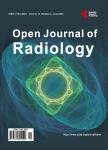Evaluation of Medical Prescribers’ Theoretical Knowledge on Medical Imaging in the Northern Region of Burkina Faso
Evaluation of Medical Prescribers’ Theoretical Knowledge on Medical Imaging in the Northern Region of Burkina Faso作者机构:Department of Medical Imaging Ouahigouya Regional University Hospital University of Ouahigouya Ouahigouya Burkina Faso Department of Medical Imaging Souro Sanou University Hospital Nazi Boni University Bobo Dioulasso Burkina Faso Department of Medical Imaging Bogodogo University Hospital Joseph Ki Zerbo University Ouagadougou Burkina Faso Workers Health Office Joseph Ki Zerbo University Ouagadougou Burkina Faso Department of Medical Imaging Yalgado Oudraogo University Hospital Joseph Ki Zerbo University Ouagadougou Burkina Faso
出 版 物:《Open Journal of Radiology》 (放射学期刊(英文))
年 卷 期:2024年第14卷第2期
页 面:33-41页
学科分类:1002[医学-临床医学] 100214[医学-肿瘤学] 10[医学]
主 题:Theoretical Knowledge Medical Imaging Northern Region Burkina Faso
摘 要:Introduction: Medical imaging is a medical specialty that involves producing images of the human body and interpreting them for diagnostic, therapeutic purposes, and for monitoring the progress of pathologies. We aimed to assess the theoretical knowledge of doctors and interns in medical imaging in the northern region of Burkina Faso. Methodology: This was a descriptive cross-sectional survey based on a self-administered questionnaire. Prescribers knowledge was estimated based on scores derived from questionnaire responses. Results: We collected 106 questionnaires out of 163, i.e. a participation rate of 65.03%. The average knowledge score was 81.71% for the contribution of medical imaging to patient management. It was 60.02% for the indications/counter-indications of radiological examinations and 72.56% for the risks associated with exposure to radiation during these examinations. The score was 59.83% for the methods used to select the appropriate radiological examination. As regards the completeness of the clinical and biological information on the forms requesting imaging examinations, the score was 96.65%. Specialist doctors had the highest overall level of knowledge (74.68%). Conclusion: Improved technical facilities, good initial and in-service training, and interdisciplinary collaboration will help to ensure that imaging tests are properly prescribed, leading to better patient care.



